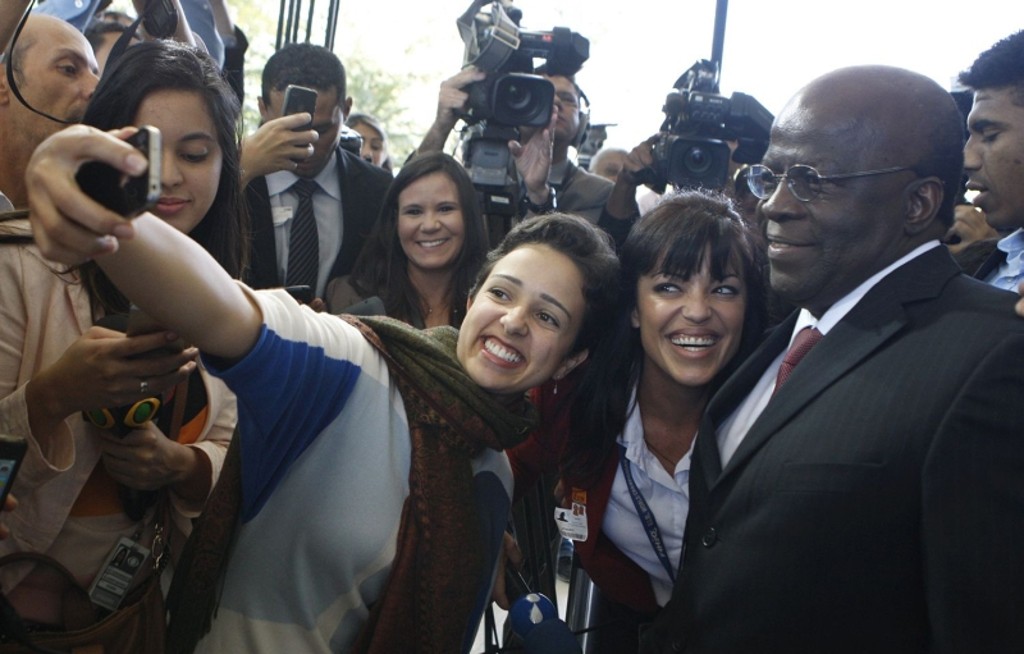
The year is 2003. The Brazilian Federal Supreme Court is reviewing the Ellwanger Case, involving a writer who published antisemitic books. Justice Moreira Alves, who always relied on technical arguments to convince his colleagues, had to surrender to a new reality just when he was about to retire. For the first time, the Federal Supreme Court Justice wants to publicly talk about the opinion he issued days before. He was concerned about the impact of the case in the press and feared he could be accused of supporting racism. “I need to clear up some things, as the impression here is that I am almost an enemy of the Jewish people…”, he said, not addressing his colleagues, but the country.
That exact moment represents a shift in the history of the relationship between the press and the Brazilian Supreme Court. One of the greatest technical references in the Supreme Court’s history is when a member of the court / lawyer has to go public to explain himself. Moreira Alves personified an era in which the Supreme Court sought discretion, in which Justices would give no interview and in which there were no live broadcasts. However, as of 2003, public opinion became crucial to the fate of major cases judged by that Court (and by all courts in the country). The new reality not only makes the lives of judges more complex but also increases the need for law firms to expand their activities into other fields beyond the legal arena.
In Brazil (as in many countries) Judges are increasingly sensitive to what they read, hear and see outside court houses. In some cases, when there is a significant power imbalance (financial, legal or institutional) between the parties involved, communication becomes crucial to level the game. And, within this context, professional journalism plays a pivotal role in publicly exposing the narratives of both sides to the dispute.
However, it is crucial to distinguish communication strategies for legal proceedings from those used in other areas. A legal case has many peculiarities, and the same formula used in an election campaign, for example, does not necessarily apply.
Distortions resulting from poor press strategies have led to negative outcomes. Some judges are highly resistant to approaches by journalists, partly due to a history of oversimplification of issues, whether intentional or unintentional, which corrupts public opinion. The republican message here is: do not mistake “strategy” for “the end justifies the means”.
Some judges may even have a case removed from the docket when they notice an orchestrated public movement to pressure them. They do so to settle things down and be able to revisit the matter later on, under normal circumstances. On the other hand, there are judges who use external arguments to try to build cases within their courts. This means that, among other consequences, a miscalculation can undermine a well-constructed legal argument, depending on the case rapporteur’s profile.
This issue has been long debated in the United States. In the 1904 case Northern Securities Co. vs. United States, the Supreme Court Justice Oliver Wendell Holmes used an expression that became famous: ”great cases, like hard cases make bad law”. According to him, when a case is of an “overwhelming interest” to the public opinion, the emotional appeal surrounding the debate prevents the impartial assessment by justices and generates distortions.
In December 2021, the U.S. Supreme Court began hearing a case regarding a Mississippi law on abortion. The debate could overturn the landmark decision issued in the 1973 case Roe vs. Wade. Concerned, Justice Sonia Sotomayor asked: “Will this institution survive the stench that this creates in the public perception that the Constitution and its reading are just political acts?”.
Communication strategy regarding lawsuits also provides a republican means to act in landmark cases. In the post-Lava Jato (Car Wash) era, for instance, where old practices such as private conversations with judges (and even less republican strategies) are becoming obsolete and large companies are increasingly protecting themselves with rigorous compliance and governance rules, the path of public debate seems the best way to balance forces in a relevant litigation.
Shedding light on technical arguments that may have gone unnoticed by judges or even pointing out injustices occurred during the legal procedures is not only beneficial for the parties involved but also for a more democratic and transparent legal system.
* Thiago Vitale Jayme is a journalist and a partner at TORRE Comunicação e Estratégia